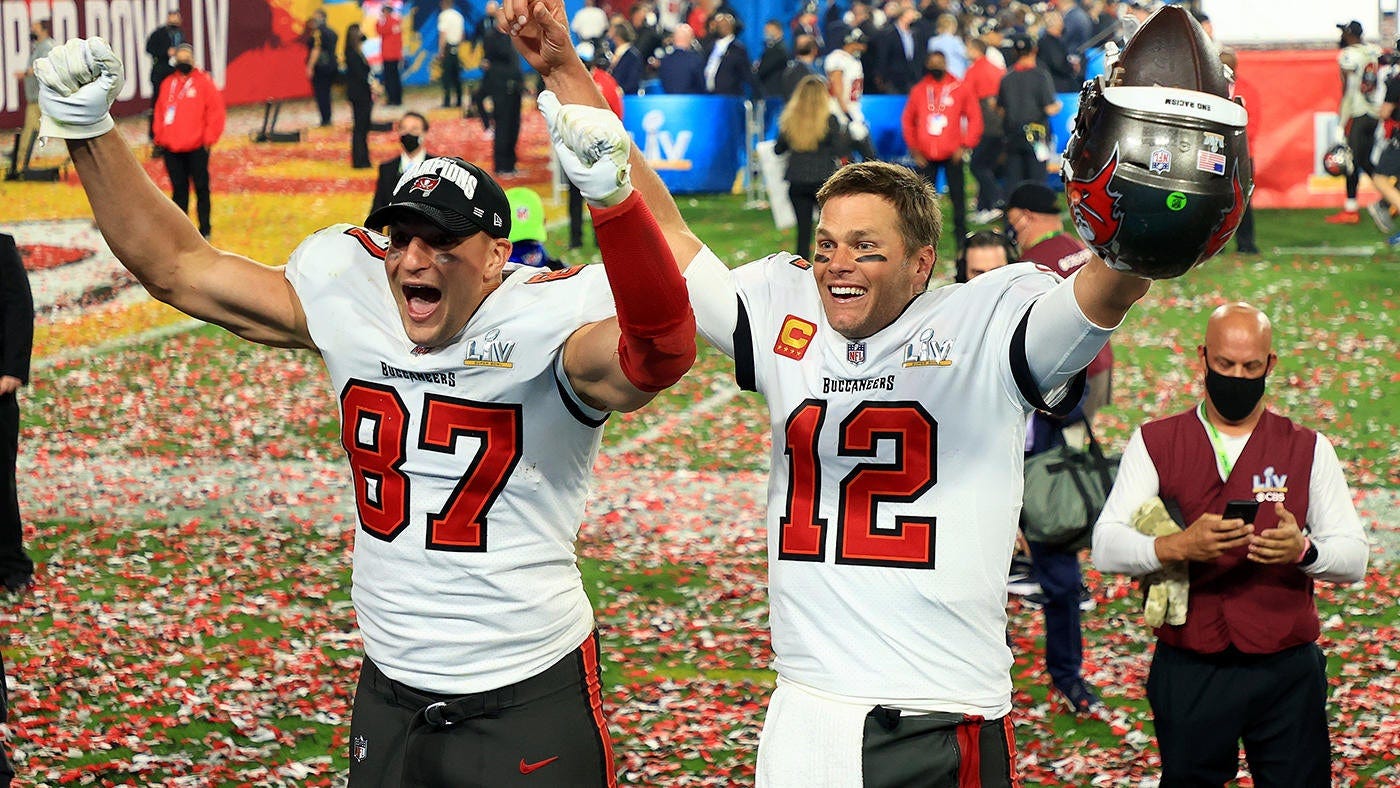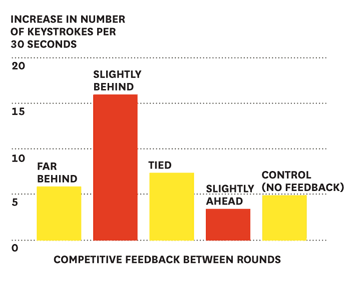
How would you push an elite athlete into peak performance mode?
Maybe you’d scour scientific journals to find the optimal diet or training regimen. Maybe you’d fork up a few grand for a motivational speaker. Or maybe you’d have them put their paycheck on the line.
Jonah Berger, a professor at the University of Pennsylvania’s Wharton School, has a different theory— one that’s grounded in our evolutionary biology.
In 2011, Berger and his team analyzed 60,000 high-level basketball games, including 18,000 NBA games, to observe how a game’s score influences effort and ultimately performance. For the most part, their findings were what you’d expect: teams that establish big leads in the first half almost always win.
“For every two points a team was ahead, its chances of winning increased by about 7%,” said Berger. “Except for this major discontinuity right in the middle.”
Teams that were down by only one point at halftime were more likely to win than teams that were ahead by one point.
This might seem like a fluke. A one-point deficit is a hyper-specific instance to study. Besides, one point isn’t much in basketball — the game might as well be tied, right?
“The fact that the game is close is precisely the point,” says Berger. “The effect is present only when the team is just slightly behind. A team in that situation knows it can compete and recognizes it must work harder in the second half to achieve its goal.”
The “Slightly Behind Effect” isn’t just limited to the hardwood.
During the 2011 FIFA Women’s World Cup final between Japan and the U.S., a commentator noted how odd it was that Japan always seemed to step up their game when they were behind.
Most recently, Tom Brady and the Tampa Bay Buccaneers sat in second place in their division behind the New Orleans for nearly the entire 2020 season. On January 17, the Bucs beat the Saints and advanced to the conference championship. On Sunday, they won the Super Bowl.
“I find it compelling that the losing team always had something more to give,” says Berger. “Why aren’t they working their hardest always? Shouldn’t it be impossible to increase the effort and motivation of an elite sample like that? I think it says something about human nature that we exert a bit more effort when we’re slightly behind.”
Professional athletes might seem like an exception — they’re genetic freaks hardwired to win at all costs. So what about everyday people looking for a competitive edge in the classroom or their careers?
 In 2011, Berger conducted an experiment in which he told subjects they were competing with a person in another room to see who could type the fastest — the winner would receive a cash prize. After one round, Berger gave the subjects feedback, saying that they were far behind, slightly behind, tied, or slightly ahead of their competitor. Only the people told that they were slightly behind picked up the pace significantly in the second round. Overall, the subjects in the “slightly behind” group performed faster than the “slightly ahead” group.
In 2011, Berger conducted an experiment in which he told subjects they were competing with a person in another room to see who could type the fastest — the winner would receive a cash prize. After one round, Berger gave the subjects feedback, saying that they were far behind, slightly behind, tied, or slightly ahead of their competitor. Only the people told that they were slightly behind picked up the pace significantly in the second round. Overall, the subjects in the “slightly behind” group performed faster than the “slightly ahead” group.
Human beings evolved to strive, not to settle. Getting too comfortable makes us vulnerable to someone who’s hungrier — literally and figuratively. That’s the basis of Austin Kleon’s quote: “If you ever find that you’re the most talented person in the room, you need to find another room.”
There are, of course, limits to the Slightly Behind Effect. In order for it to work, you have to be within a realistic striking distance. Facing a blowout at halftime might even make you give up, just like a startup comparing itself to Amazon would be deflating. However, a healthy dose of competition lets you to dip into mental and physical resources you didn’t even know you had.
In other words, it pays to be losing —but only by a little.